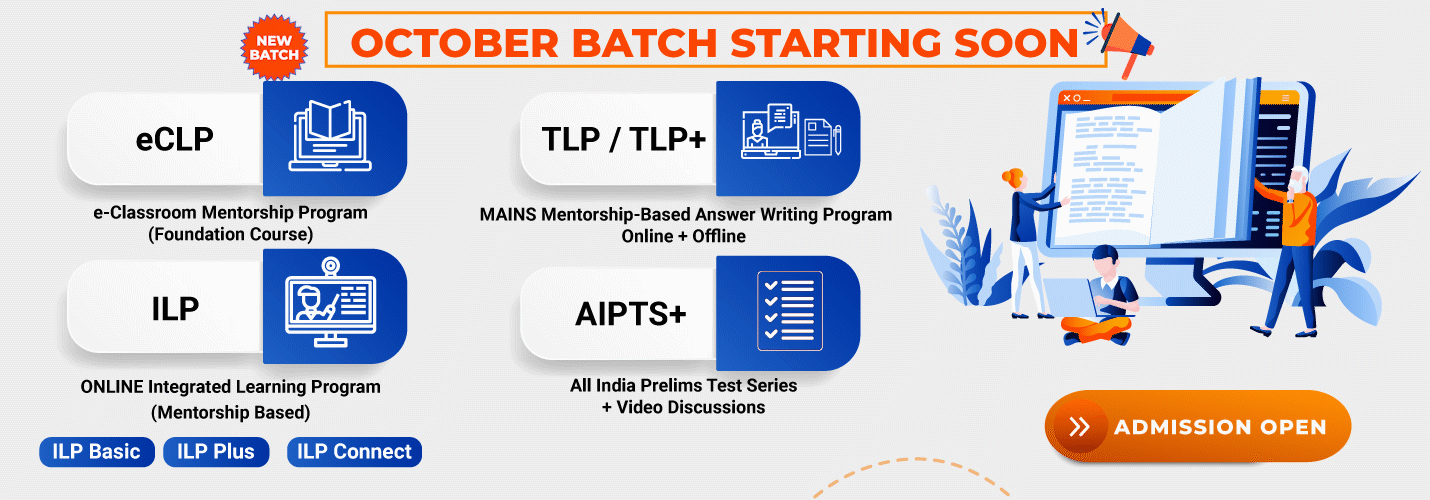UPSC Articles
WOMEN/ GOVERNANCE/ SCIENCE & TECH
Topic: General Studies 2,3:
- Government policies and interventions for development in various sectors and issues arising out of their design and implementation
- Mechanisms, laws, institutions and Bodies constituted for the protection and betterment of these vulnerable sections.
- Science and Technology- developments and their applications and effects in everyday life.
Assisted Reproductive Technology Bill – Part I
Context: Union Health Minister introduced the Assisted Reproductive Technology (Regulation) Bill, 2020 (Bill) in the Lok Sabha on September 14.
Aim of the Bill
- To regulate ART banks and clinics
- Allow safe and ethical practice of ARTs
- Protect women and children from exploitation
- To supplement the Surrogacy (Regulation) Bill, 2019 (that awaits consideration by the Rajya Sabha)
Some of the key Provisions of the bill are:
- Definition of Assistive Reproductive Technology
- The Bill defines ART to include all techniques that seek to obtain a pregnancy by handling the sperm or the oocyte (immature egg cell) outside the human body and transferring the gamete or the embryo into the reproductive system of a woman.
- Examples of ART services include gamete (sperm or oocyte) donation, in-vitro-fertilisation (fertilising an egg in the lab), and gestational surrogacy (the child is not biologically related to surrogate mother).
- ART services will be provided through: (i) ART clinics, which offer ART related treatments and procedures, and (ii) ART banks, which store and supply gametes.
- Regulation of ART Clinics and ART Banks
- The Bill provides that every ART clinic and bank must be registered under the National Registry of Banks and Clinics of India.
- The National Registry will be established under the Bill and will act as a central database with details of all ART clinics and banks in the country.
- State governments will appoint registration authorities for facilitating the registration process.
- Clinics and banks will be registered only if they adhere to certain standards (specialised manpower, physical infrastructure, and diagnostic facilities).
- The registration will be valid for five years and can be renewed for a further five years.
- Conditions for gamete donation and supply
- A bank can obtain semen from males between 21 and 55 years of age, and oocytes from females between 23 and 35 years of age.
- An oocyte donor should be an ever-married woman having at least one alive child of her own (minimum three years of age).
- The woman can donate oocyte only once in her life and not more than seven oocytes can be retrieved from her.
- A bank cannot supply gamete of a single donor to more than one commissioning couple (couple seeking services).
- Conditions for offering ART services
- ART procedures can only be carried out with the written informed consent of both the party seeking ART services as well as the donor.
- The party seeking ART services will be required to provide insurance coverage in the favour of the oocyte donor (for any loss, damage, or death of the donor).
- A clinic is prohibited from offering to provide a child of pre-determined sex.
- The Bill also requires checking for genetic diseases before the embryo implantation.
- Rights of a child born through ART:
- A child born through ART will be deemed to be a biological child of the commissioning couple and will be entitled to the rights and privileges available to a natural child of the commissioning couple.
- A donor will not have any parental rights over the child.
- National and State Boards:
The Bill provides that the National and State Boards for Surrogacy constituted under the Surrogacy (Regulation) Bill, 2019 will act as the National and State Board respectively for the regulation of ART services. Key powers and functions of the National Board include:
- Advising the central government on ART related policy matters
- Reviewing and monitoring the implementation of the Bill
- Formulating code of conduct and standards for ART clinics and banks
- Overseeing various bodies to be constituted under the Bill.
Analysis of the provisions of the bill will be taken up in Part II of this article












